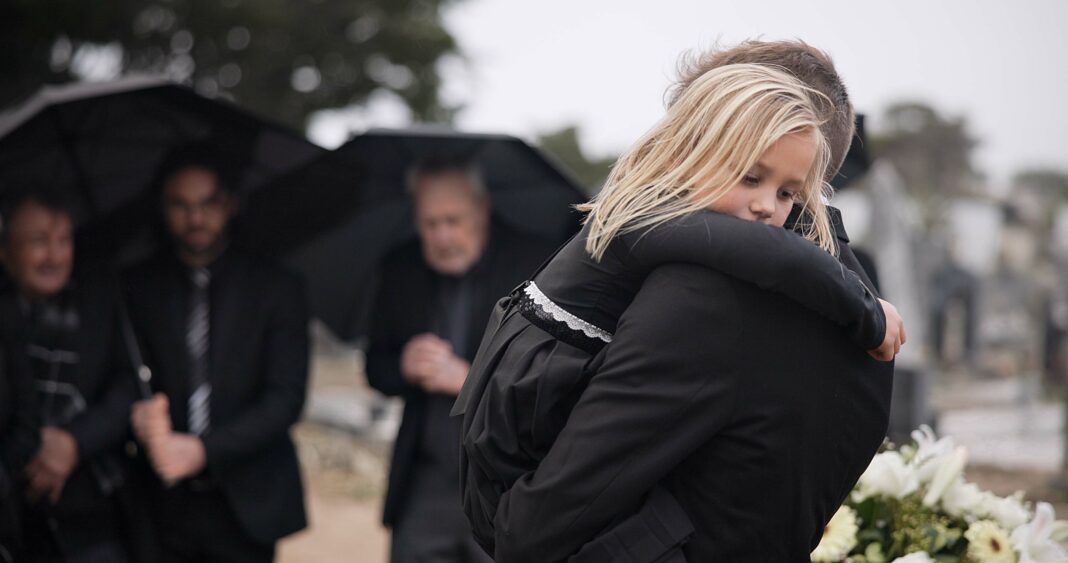L
osing a parent at any age is a heart-wrenching experience, but when it happens during a child’s formative years, the consequences can be deeply profound. The death of a parent at a young age can have a lasting impact on a child’s emotional, psychological, and social development, leading to significant self-esteem difficulties and the development of abandonment-related fears. In this article, we will delve into the effects of early parental loss and explore the steps we can take to support children coping with such grief.
“The death of a parent can create a profound fear of abandonment in a child”
The loss of a parent during childhood can trigger a rollercoaster of emotions for a child. Feelings of sadness, confusion, anger, and even guilt may emerge as the child struggles to comprehend the permanence of death and the absence of their loved one. These overwhelming emotions can lead to difficulties expressing themselves and creating internal turmoil that can last well into adulthood. A child’s emotional support, validation, and guidance come primarily from their parents. Therefore, the death of one parent can create a significant void in their life, impacting their self-worth. The absence of parental praise, affection, and encouragement can hinder the healthy development of their self-esteem, causing feelings of unworthiness or unlovability. Moreover, the child might mistakenly assume responsibility for their parent’s death, regardless of circumstances beyond their control. This misplaced guilt can intensify self-esteem issues, leading the child to believe they are flawed or to blame for the loss, resulting in feelings of inadequacy and self-doubt.
The death of a parent can create a profound fear of abandonment in a child. They may develop anxious attachment styles, worrying that others they care about might leave them, too. This fear can impact their relationships, making it difficult to form secure and trusting bonds with others. In some cases, these abandonment issues can manifest as behavioral problems or emotional withdrawal. The child may act out to seek attention or build emotional walls to protect themselves from the pain of potential loss. This coping mechanism, while understandable, can hinder healthy emotional growth and social development.
“Society needs to be compassionate and understanding, offering support and resources to help these children navigate their grief and build a strong foundation for their future”
Understanding and addressing the effects of early parental death is crucial for providing the necessary support to children facing such profound grief. Here are some steps that can help children cope with their emotions and promote healing:
- Encourage open and honest communication about the loss and the emotions it brings. Children need a safe space to express their feelings and have their questions answered truthfully.
- Seeking guidance from a child psychologist or counselor can provide the child with tools to navigate their emotions effectively.
- Surround the child with caring and understanding individuals, such as family members, friends, or support groups, who can offer love and encouragement.
- Encourage positive memories and celebration of the deceased parent’s life. This can help the child maintain a connection and come to terms with the loss healthily.
- Create stable and predictable routines to provide a sense of security and normalcy in the child’s life.
- Engage the child in creative activities that allow them to express their emotions, such as drawing, writing, or storytelling.
The effects of early parental death on a child’s development can be profound and far-reaching. The emotional struggle, self-esteem challenges, and abandonment issues that arise can shape the child’s life for years to come. Society needs to be compassionate and understanding, offering support and resources to help these children navigate their grief and build a strong foundation for their future. With the right guidance and love, these children can find healing and resilience, allowing them to lead fulfilling lives despite the tragic loss they have endured.
References
Ellis, J., Dowrick, C., & Lloyd-Williams, M. (2013). The long-term impact of early parental death: lessons from a narrative study. Journal of the Royal Society of Medicine, 106(2), 57–67. https://doi.org/10.1177/0141076812472623
Kranzler, E. M., Shaffer, D., Wasserman, G., & Davies, M. (1990). Early childhood bereavement. Journal of the American Academy of Child and Adolescent Psychiatry, 29(4), 513–520. https://doi.org/10.1097/00004583-199007000-00002
Martin, T. L. (2019). Worden, J. W. (2018). Grief Counseling and Grief Therapy. A Handbook for the Mental Health Practitioner. OMEGA – Journal of Death and Dying, 80(2), 331–334. https://doi.org/10.1177/0030222819869396
Pham, S., Porta, G., Biernesser, C., Walker Payne, M., Iyengar, S., Melhem, N., & Brent, D. A. (2018). The Burden of Bereavement: Early-Onset Depression and Impairment in Youths Bereaved by Sudden Parental Death in a 7-Year Prospective Study. The American journal of psychiatry, 175(9), 887–896. https://doi.org/10.1176/appi.ajp.2018.17070792
Thompson, M. P., Kaslow, N. J., Kingree, J. B., King, M., Bryant, L., Jr, & Rey, M. (1998).
Psychological symptomatology following parental death in a predominantly minority sample of children and adolescents. Journal of clinical child psychology, 27(4), 434–441. https://doi.org/10.1207/s15374424jccp2704_7
About the authors



Mei-Ling Villafaña Abraham, BCaBA, is a child and adolescent psychology doctoral student. She believes that early treatment of mental health disorders in children is essential for promoting healthy development, preventing further issues, and improving their overall quality of life. Her passion lies in advocating for policies and practices that support the well-being of children, including access to healthcare, education, and other resources.
Claudia Cedeno, M.S., BCaBA, is working towards her doctorate in clinical psychology, focusing on child and adolescent psychology. Her passion for serving her community through clinical practice has led her to develop a particular interest in understanding the distinct needs and challenges children and adolescents face.
Ednei Estevez, M.S., LMHC, BCBA, is a doctoral student who focuses on child and adolescent psychology, with close to ten years of experience working with a diverse range of children and adolescents, both neurotypical and neurodiverse. He is firmly committed to promoting inclusivity and understanding within the mental health and ABA fields.





























